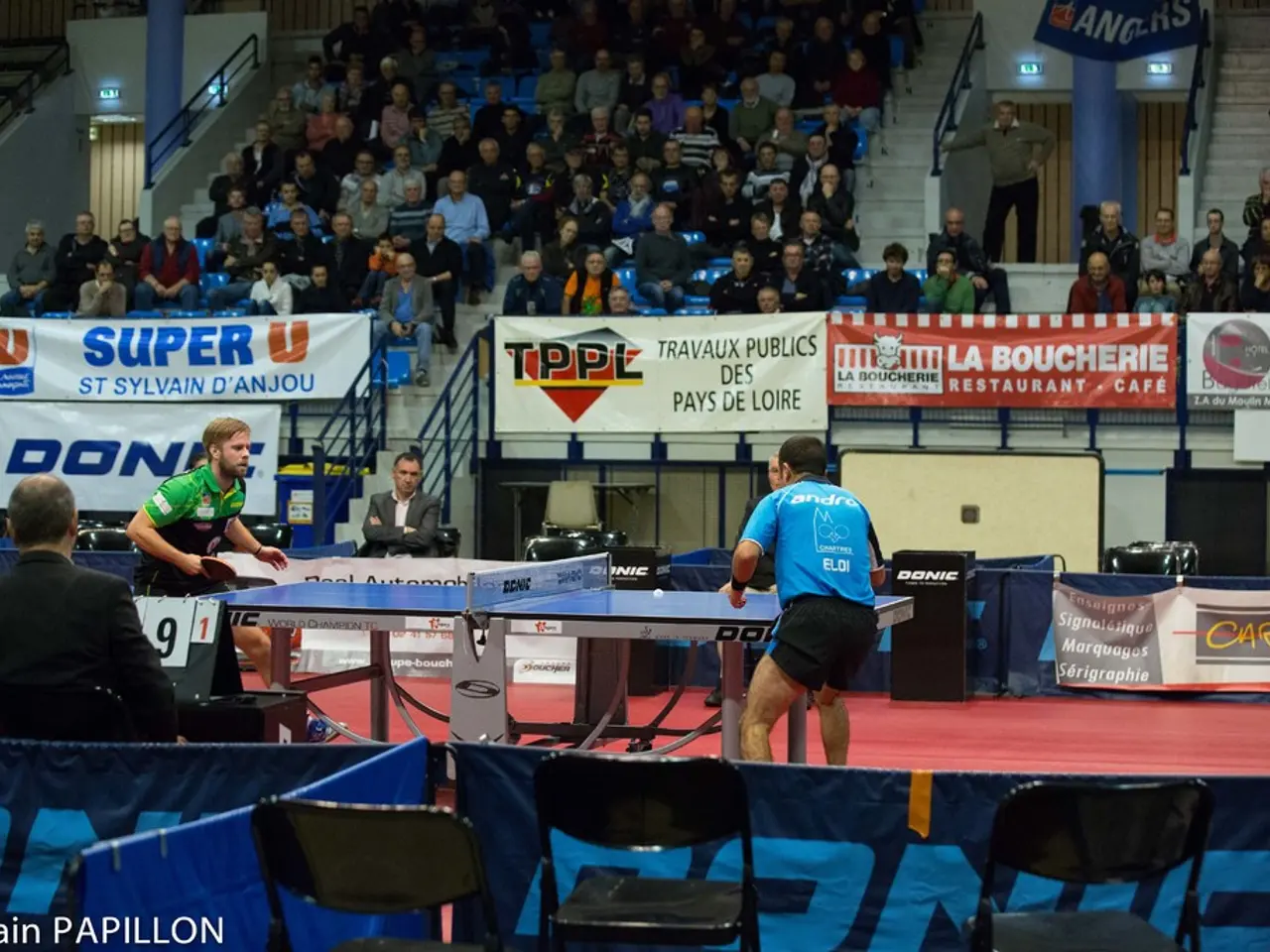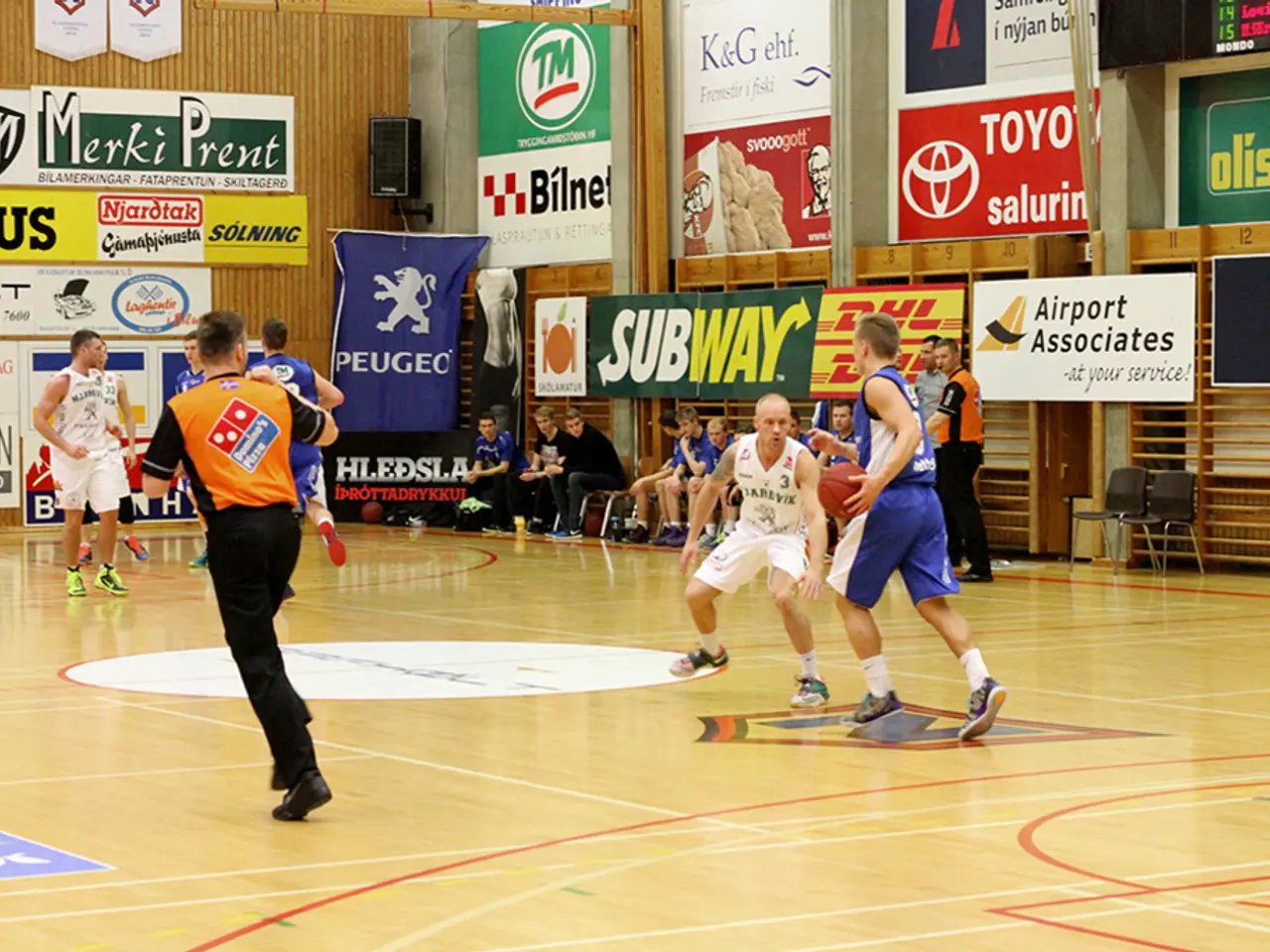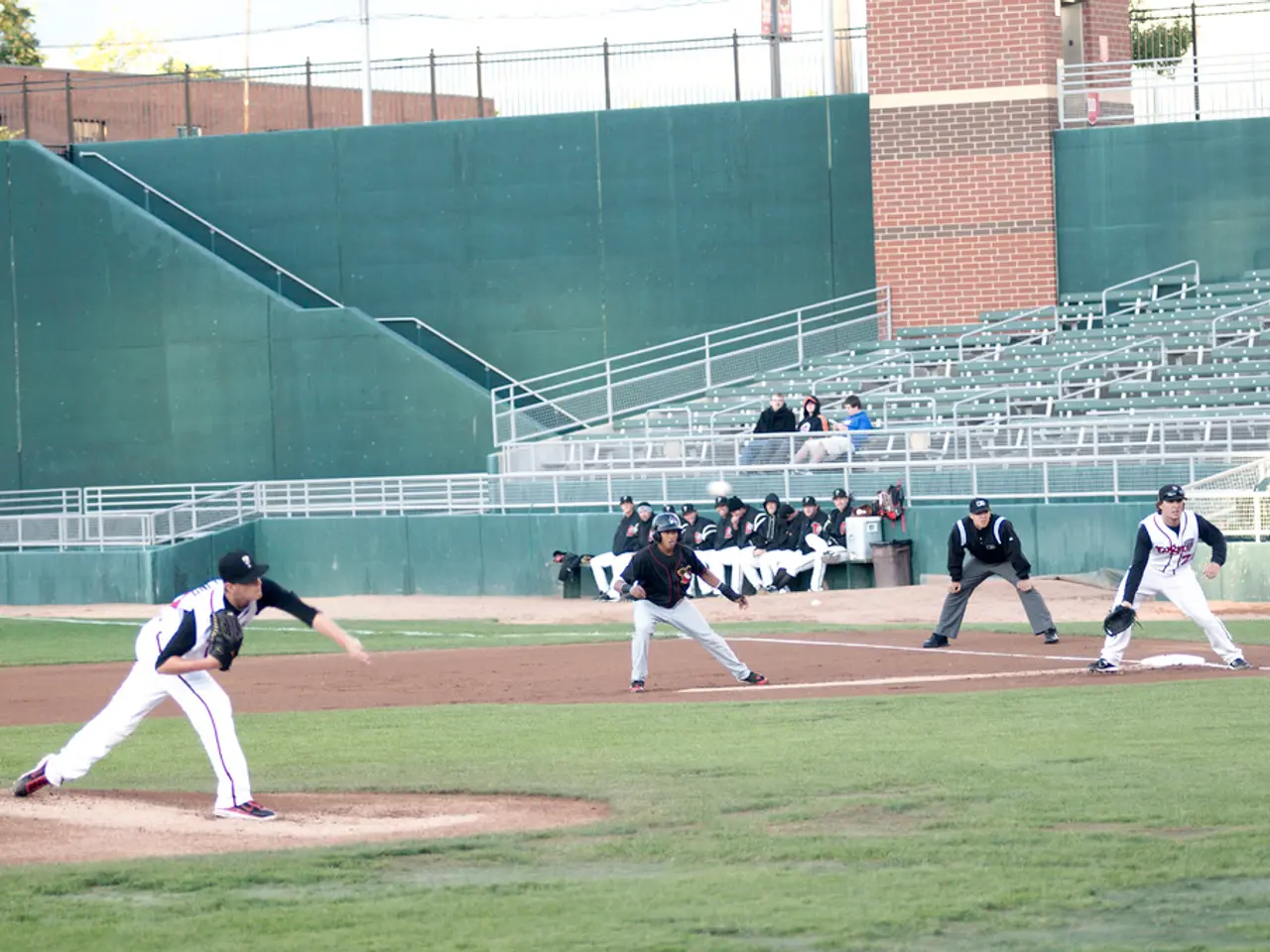Tennis Championship Shows Sizzling Competition as Player Health Remains a Priority
In the world of professional tennis, player health and welfare have become pressing concerns. The gruelling schedule, physical injuries, mental health struggles, and extreme environmental factors like heat are taking a toll on athletes, threatening their long-term health and performance stability.
The relentless nature of the ATP and WTA tours has been a significant factor in the high incidence of stress injuries and other health issues among players. Top tennis stars, including Novak Djokovic, have voiced their concerns about the current schedule, describing it as too intense.
Conditions such as late-night matches have been shown to take a measurable toll on player health, affecting recovery and performance. The Professional Tennis Players Association (PTPA) has been vocal about the need to address these issues, emphasising player welfare and safety in scheduling and match conditions.
Mental health is another critical concern in tennis. Reports indicate a growing mental health crisis within the sport, with many players struggling psychologically. Former Wimbledon champion and coach Goran Ivanišević has highlighted that some players are on antidepressants to cope with the pressure. High-profile players like Alexander Zverev have openly shared their struggles with motivation and enjoyment, pointing to the brutal mental demands of tennis and the isolation of the sport.
Amanda Anisimova's story illustrates the intense mental pressures on players, including dealing with personal tragedies and negative social media, which led her to temporarily step away from the sport before making a strong comeback prioritizing her wellbeing.
At premier events like Wimbledon, extreme heat is a particular concern. Although specific recent incidents at Wimbledon 2025 were not detailed, it is widely recognised that such environmental stressors dramatically affect player health and welfare. The All England Lawn Tennis Club (AELTC) has measures in place to handle extreme heat, such as a 10-minute break when the Wet Bulb Globe Temperature (WBGT) is at or above 30.1 degrees. However, incidents like Iga Swiatek's match against Belinda Bencic, which resulted in a spectator being carried off by paramedics, highlight the need for continued vigilance.
The PTPA has been vocal about the need to consider these health risks seriously. Djokovic has suggested the possibility of reducing early matches in Slams to a best-of-three format due to the high number of long matches in the previous year.
However, the challenges facing professional tennis players are not limited to Wimbledon. In 2014, temperatures in Melbourne during the Australian Open reached over 40 degrees. Ons Jaber and Stefanos Tsitsipas retired in temperatures soaring towards 32 degrees on the first Monday of Wimbledon this year. Jannik Sinner experienced an injury during his match against Grigor Dimitrov and required protective padding. Dimitrov retired from the match due to a chest muscle pull.
Despite these challenges, there are moments of camaraderie and sportsmanship. Aryna Sabalenka provided water for a distressed fan during her match at Wimbledon. Flavio Cobolli politely returned Djokovic's racket after an incident.
As the demands on players continue to grow, it is crucial that governing bodies prioritise player welfare. By addressing these concerns, tennis can ensure a healthy and sustainable future for its athletes and the sport as a whole.
Tennis players face numerous health challenges due to the exhausting ATP and WTA tours, with Novak Djokovic among the top stars voicing concerns about the current schedule. Player welfare remains a key concern during events like Wimbledon, where extreme heat and late-night matches can significantly affect recovery and performance.
Moreover, mental health struggles are becoming common among tennis players, with some requiring medication to cope with the pressure, and high-profile players like Alexander Zverev openly discussing their struggles. The Professional Tennis Players Association (PTPA) continues to emphasise the importance of addressing these issues in scheduling and match conditions.








